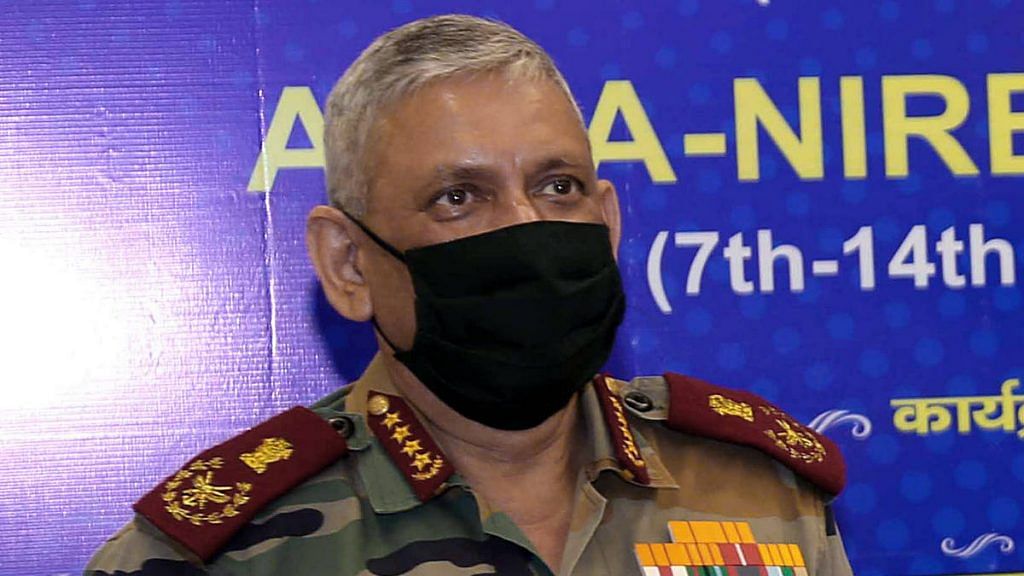New Delhi: Underlining that China was facing “unanticipated consequences” for its misadventure in Ladakh because of a strong and firm response by the Indian forces, Chief of Defence Staff (CDS) Gen Bipin Rawat Friday said status quo has to be restored and India will not accept any shifting of Line of Actual Control (LAC).
He also said that while the probability of a full-scale conflict with China was low, border confrontations, transgressions and unprovoked tactical military action spiralling into a larger conflict cannot be ruled out.
His comments at a seminar of the National Defence College came on a day when the corps commanders from India and China are meeting for the 8th time in Eastern Ladakh to find a solution to the seven months-long stand-off between the forces of the two countries at the LAC.
“The situation along the LAC in Eastern Ladakh remains tense and the People’s Liberation Army is facing unanticipated consequences for its misadventure in Ladakh because of firm and strong responses by the Indian forces,” Rawat said.
The CDS was referring to India standing firm in the face-off with China and responding strongly to the aggression on 15 June in the Galwan Valley which led to the death of 20 Indian soldiers and several People’s Liberation Army (PLA) troops.
Indian forces had also outmaneuvered the Chinese on 29-30 August to occupy strategic heights in the southern bank of the Pangong Tso, much to the angst of the Chinese who have been insisting that Indian troops vacate that area.
“Our posturing is unambiguous — status quo has to be restored and we will not accept any shifting of the Line of Actual Control,” Gen Rawat said.
He said that the situation at the LAC remains tense amid transgressions and “belligerent actions” by the Chinese.
Economic slowdown forcing China to be aggressive abroad
The CDS said that while economic slowdown due to pandemic has made China repressive at home, it has become aggressive abroad, evident from its posturing in the South China Sea, East China Sea and the Taiwan Straits.
He said that in the coming years, the world will witness aggressive pursuit of hegemonic interests by China, manifesting through economic exploitation of weaker nations, military modernisation and increased consternation with the West.
Giving an outlook of how the ties will shape in future, Gen Rawat was candid and said the persisting boundary dispute, China’s support to Pakistan, its increasing influence in South Asia through the Belt Road Initiative (BRI) projects and an unbalanced economic relationship is likely to ensure that, in the near future, the Sino-India relationship will remain a “fundamentally competitive one”.
He noted that China, with its ambition of emerging as a global power, is already making inroads into South Asia, Indian Ocean Region (IOR) and especially East Africa through BRI projects.
“Chinese aspirations are evident in the ever expanding Chinese military maritime footprints in the Indo-Pacific, huge investments in the IOR littorals, and entering into strategic partnership with a number of countries like South Africa, Egypt, Pakistan, and Association of Southeast Asian Nations (ASEAN),” he said. “All this is aimed at creating favourable strategic posture to provide sufficient security to its overseas interest,” Gen Rawat added.
Also read: Veterans must know that rising defence pension bill needs to be tamed for military’s own good
